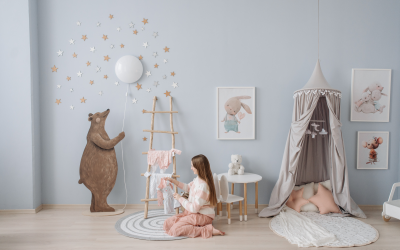Newborn babies spend more time asleep than they do awake. So, it’s not a thing to be worried about if you think your baby is sleeping throughout the larger portion of the day. Their sleep pattern is highly intermittent and variable. The reason may be that they are not yet used to the traditional nighttime sleep, and hence they do not sleep at times that seems appropriate for others.
One of the most challenging parenting tasks is taking care of one’s newborn’s sleep schedule. Moreover, these sleep patterns of the baby are extremely important in the baby’s healthy brain development. It also affects other abilities like language, visual development, and impulse control.
Is My Newborn Sleeping Too much?
As mentioned above, most newborns are asleep more than they are awake about the duration of their sleep. The total duration varies daily from 8 to more than 17 to 18 hours. Also, their sleep is extremely weak, meaning that they may wake up from their sleep if they are too hot, too cold, or even if there is some loud sound around them. They often wake up in the middle of the night if they are thirsty or hungry.
Although newborns sleep a lot more than adults, this is called Chronic sleepiness, in which the baby sleeps more than 18-19 hours. This is somewhat concerning because sleeping like this regularly is usually pathological and does surely have some underlying cause.
There can be a lot of reasons why your baby is sleeping way more than normal. If you forcibly try to decrease the baby’s sleep, it makes the baby cranky, and he cries and irritates you more than average. Although if the baby is sleeping more than normal without exhibiting any other symptoms, this should not be concerning.
Newborn Sleep Cycle:
Before getting into the actual sleep cycle of a baby, you should first know what is meant by the “States of Consciousness.” This phenomenon refers to the periodic states through which the baby (newborn) goes during the entire length of the day. There is a total of six of these states, namely:
- State of Deep Sleep
- State of Light Sleep
- Drowsiness Sleeping State
- Quick Alert Sleeping State
- State of Active Alert
- Crying Sleeping State
Among these six, the first two are concerned with sleep which are “Deep Sleep” and “Light Sleep.”
Deep Sleep State
It is a state of complete sleepiness in which the baby is in a strong sleep. The baby makes no sound or movement at this stage and sleeps peacefully and quietly. The breathing is deep, and the baby does not wake easily.
Light Sleep State
During light or Active Sleep, the newborn makes noises and movements. This stage means that the baby is not yet fully asleep and will wake up immediately if any disturbance startles him.
These light and deep sleep states alternate for about 40 minutes to make a sleep cycle. The baby in its sleep goes through many sleep cycles during its sleep. At the end of each cycle, the baby wakes up in a drowsing state and then sleeps again.
When To See a Doctor?
Sleeping throughout the day is quite normal for infants until or unless you notice symptoms like respiratory issues in your baby. You can consider going to a doctor if you see the bad health of your newborn along with a ruined sleep pattern.
To avoid any uncertain incident, you should seek a doctor’s assistance for your baby. If you have a family doctor or you need an online check-up, you can contact the pediatrician to look over the baby’s health on the phone. Don’t delay contacting a doctor if you see the following symptoms in your newborn:
- If your baby has a fever and It’s not getting recovered.
- If your infant’s breathing sound is loud.
- If you notice your baby gasping.
- If unconsciously your baby has eaten or inhaled something unhealthy.
- If the nostrils of your baby are getting flared when breathing.
- If you notice the skin of the baby’s chest sinking in while breathing.
Final Thoughts:
Newborns require more cautiousness and preventive measures when it comes to their health. The parents must take care of their sleep patterns and diet to ensure good health. All infants have a comfortable sleeping schedule, and parents or caretakers must know about their baby’s normal sleep.
Don’t hesitate to contact a doctor if you are worried about your baby’s sleep pattern or notice any respiratory symptoms. A doctor’s assistance will help you get satisfied with your baby’s health. All in all, don’t get much worried if your baby is sleeping more than normal hours or lacking sleep; just keep a record of its sleeping pattern.

How much do Newborn Sleep Normally?
Sleep management is necessary for the health of newborns. They’re more vulnerable to diseases than grown-up adults. Some newborns sleep 10 hours a day, while others sleep 15 hours a day, depending on their health and environment. Parents must check their baby’s sleep pattern to avoid any uncertainty.
Mostly, infants sleep for 16 hours in total, 8 hours in the day and 8 hours at night. Newborns spend most of their time sleeping, which can worry parents too, but it’s quite normal. They don’t sleep straight for 9-10 hours; rather, they have to wake up to feed after every few hours. If your baby sleeps up to 19 hours a day, you don’t have to worry about it. You can consider it a normal sleep pattern until or unless your baby suffers from any disease.
On the other hand, if your baby is sleeping for more than 19-20 hours, you must look for other respiratory symptoms in your baby. If you see signs like more crying or getting less hungry, you can contact a pediatrician too. Be conscious about the baby’s diet, feed it before it asks for the milk, and don’t make him cry. Most newborns suffer from lack of sleep or excessive sleep resulting from an irregular sleep pattern. Babies sleep throughout the day, and waking up the whole night isn’t healthy for them, and they will develop a bad habit of staying awake at night.
Also interesting to read:
- Newborn wouldn’t sleep unless held
- Newborn dry lips: Sign, Causes and Treatments
- When To Switch Nipple Sizes On Baby’s Bottle – A Full Guide!
- HOW TO AVOID BURNOUT AS A STAY AT HOME MOM
- Reasons CPS can take your Newborn
- Newborn sticking tongue out
- Newborn Snoring
- How To Clean Baby Ears
- Tips To Get Better At Burping a Newborn That Won’t Burp





